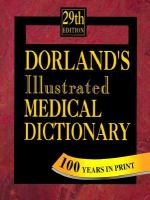Medical Dictionaries
Medical terminology can be hard enough for medical
students to learn, let alone anyone else. Say your doctor has told you that you
should begin taking a particular drug. You want to know more information about
what the drug is for, how to take it, and whether there are any side effects
that you should know about. Maybe you weren't expecting to need a new
medication, and you forget to ask your doctor some of the questions you have.
When you call his office, he's unavailable. Is there a way to find out what you
need to know?
"The Physician's Desk Reference" is one
resource that we keep to help with questions like this. It is kept behind the
reference desk so that the librarian there can pull it out quickly for people
who have questions about prescription medicines. Maybe you are curious about
Eliquis which you are supposed to begin taking to prevent you from having a
stroke. You come to the library, ask for "The Physician's Desk
Reference," and look up your new medication. You glance over the
recommended dosage, and you read the side effects. One is "bleeding,"
which seems straightforward. But the first side effect is "Increased risk
of thrombotic events after premature discontinuation." You stop and
stare--and stare some more.
What should your first step be? You can look up medical
terms on the internet, of course, but having an authoritative source of
information is important--this medicine is going down your throat, after all.
If you want a source that you know you can trust, your safest bet might be a
medical dictionary.
 Medical dictionaries only include words that are related
to medical and health topics. Many medical dictionaries include illustrations
to help you understand what a condition (warts, anyone?) looks like. They
include common medical terms like "arthritis," offering specific
definitions of different varieties of the condition. And then there are the extremely
unfamiliar terms. "Under "A," you can find words like
"apraxia," "arcus senilis," and "avulsion." Under
"Z," you can find "zeolite," "zonulitis,"
Medical dictionaries only include words that are related
to medical and health topics. Many medical dictionaries include illustrations
to help you understand what a condition (warts, anyone?) looks like. They
include common medical terms like "arthritis," offering specific
definitions of different varieties of the condition. And then there are the extremely
unfamiliar terms. "Under "A," you can find words like
"apraxia," "arcus senilis," and "avulsion." Under
"Z," you can find "zeolite," "zonulitis,"
and "zygoma."
Some of our medical dictionaries are available in the
reference section, but others can be checked out. For a reference book with
some good illustrations, try "Dorland's Illustrated Medical
Dictionary." Or, if you would like to take a medical dictionary home, a
copy of "Taber's Cyclopedic Medical Dictionary" is available for checkout
in out nonfiction section.


No comments:
Post a Comment